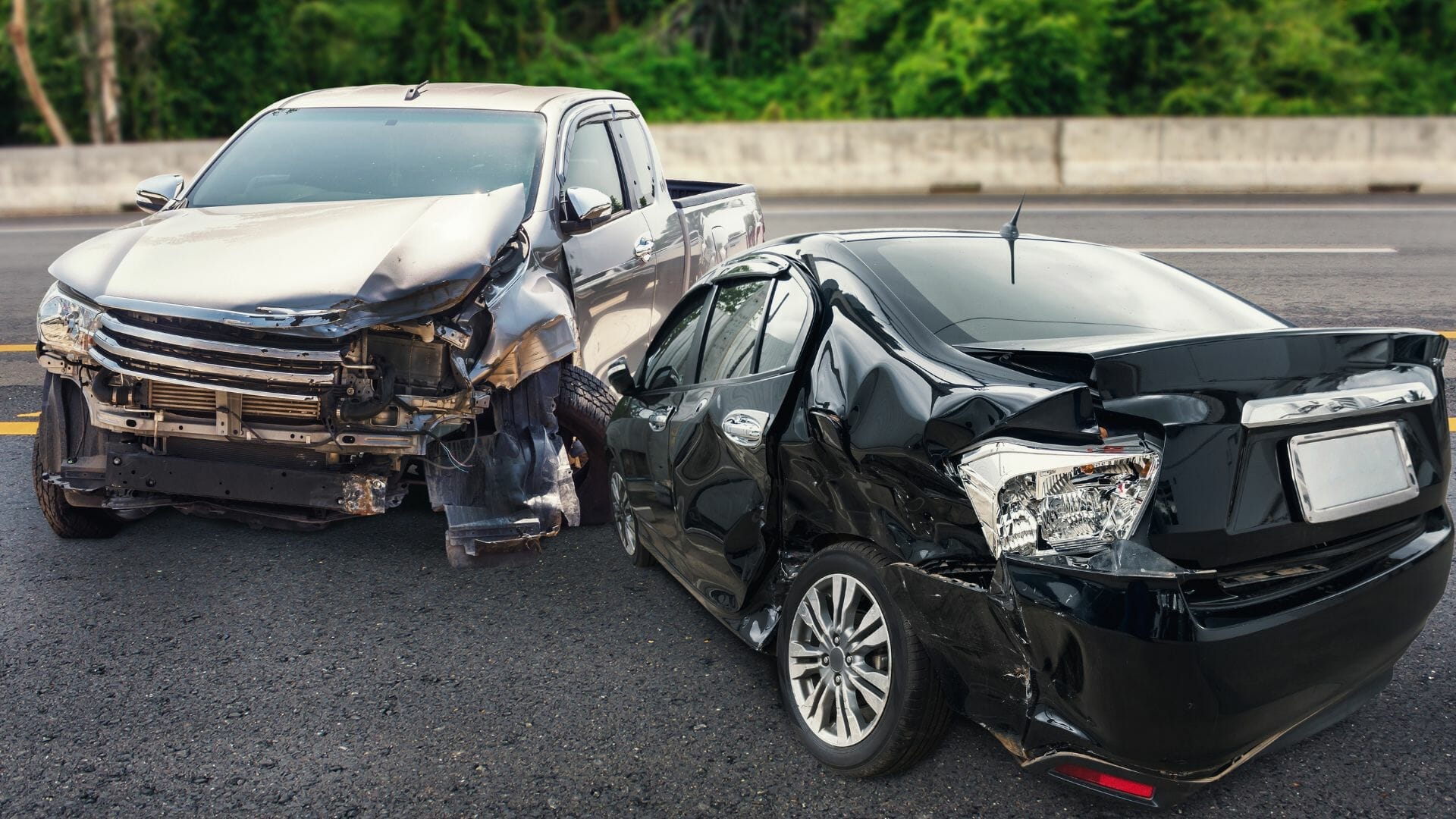Front end collision is a common type of car accident in Virginia. As the name implies, a front-end crash happens when you drive into another car or object with the front end of your vehicle. It is also considered to be a front-end crash when another person drives into the front end of your vehicle in a head-on collision.
Front end collisions may occur frequently, but they can cause serious injuries to you and the occupants of your vehicle. When you sustain injuries or property damage in a crash of this nature, seek legal help. People hurt by front-end collisions may have legal rights, including the right to recover compensation. Contact a personal injury lawyer for free consultation about your case.
Injuries Seen in Front End Collision
A vehicle’s front end offers a great deal of protection to you and any occupants riding with you. The engine block and supporting structure, along with your car’s bumper assembly, absorb a significant amount of energy in a front-end crash. Nonetheless, injuries can still occur, and some can be severe. These injuries include:
Whiplash
One of the greatest risks in a front-end crash is whiplash. When driving, your body and head are traveling in the same direction and at the same speed as your car.
When you suddenly stop because of a collision, your body and head continue moving forward. This forward movement does not stop until they hit something or are restrained by something.
In front end collision, your seat belt, airbag, or other objects in the car stop your body’s and head’s forward movement. This cessation of movement can be sudden, sending your head backward again. This violent forward and backward movement of your head and neck is whiplash.
Your brain follows the movement of your head. As a result, the back-and-forth movement of your head will cause your brain to move forward and backward, too. Your brain suffers trauma from hitting the inside of your skull. This trauma can then lead to other injuries like persistent headaches, confusion, and behavioral changes.
Injuries from Safety Equipment
Just because a seat belt and airbag can save your life does not mean they cannot cause injuries. An airbag inflates with such force that you can suffer facial injuries if you are seated too close to the steering wheel at the time of the crash.
Defective airbag equipment may not inflate at all or may over-inflate, again causing injuries to your head, face, and neck.
Seat belts restrain your body’s forward movement during front end collision. This puts tremendous force on your shoulder, chest, waist, and hips. As a result, you may suffer bruising to the soft tissues under where your seat belt lies.
In more serious front end collisions, damage to your shoulder bones, ribs, and hips can occur. In addition, your internal organs can sustain traumatic forces.
Damage to Your Extremities
In a front-end crash, the force of the impact will transfer first from the bumper of your car to the engine block. From there, it will continue traveling toward the back of your vehicle, eventually traveling through your steering wheel and floorboard.
The first parts of your body to experience the force of the impact will often be your hands and feet.
Your hands and wrists may suffer sprains, strains, and fractures due to holding the steering wheel. Similarly, your feet and ankles can sustain similar injuries because of the forces of a front end collision. These extremities are also at risk of cuts, burns, and loss-of-limb injuries.
Where Front End Collision Happen in Virginia

Front-end crashes are so common because they can happen under a variety of circumstances. You can be traveling along a deserted road and run into a road sign, thereby causing a front-end crash. You may also suffer a front-end crash when:
- Following other traffic ahead of you too closely
- A negligent driver crosses the centerline and hits you head-on
- Striking a car that has violated the right-of-way in an intersection
- Striking a pedestrian or other object that crosses your path of travel
A variety of circumstances can make front end collisions more likely. Traveling too fast at night or when visibility is poor can increase the risk of a front-end crash as you have less time to react to an obstacle in front of you.
Driving while texting or being distracted can also raise the probability of a front-end crash. If your eyes are not focused on the road ahead of you, it is easy to miss seeing another car or person in your way. It also becomes difficult to keep your car traveling straight on the road.
Last, drinking and driving or driving while impaired can drastically raise the chances you will cause a front-end crash. Alcohol and drugs slow your reflexes, making it harder to suddenly stop and avoid a crash. Your ability to safely control your car also suffers, leading to crashes wherein you leave the road and strike a stationary object.
Liability for Front-End Wrecks
If you or a loved one sustain harm in a front-end wreck, the person responsible for causing that crash will pay damages to you. Determining fault in front end collision can be complicated, and you may need experienced help.
Having a knowledgeable auto accident attorney assist you can allow you to gather and present evidence establishing fault and your right to compensation.
Get Started with Your Virginia Car Crash Claim
The Joel Bieber Firm is ready to spring into action for you and your family after a front-end crash. Contact our office and retain our services right away.
We will investigate your crash and handle all aspects of your case from start to finish with care and dedication. Let us help you during your time of need. Reach out to The Joel Bieber Firm today.
Interesting Reads:
Rear-End Collisions: Who’s to Blame?
Baltimore Head On Collision Accident Lawyer

